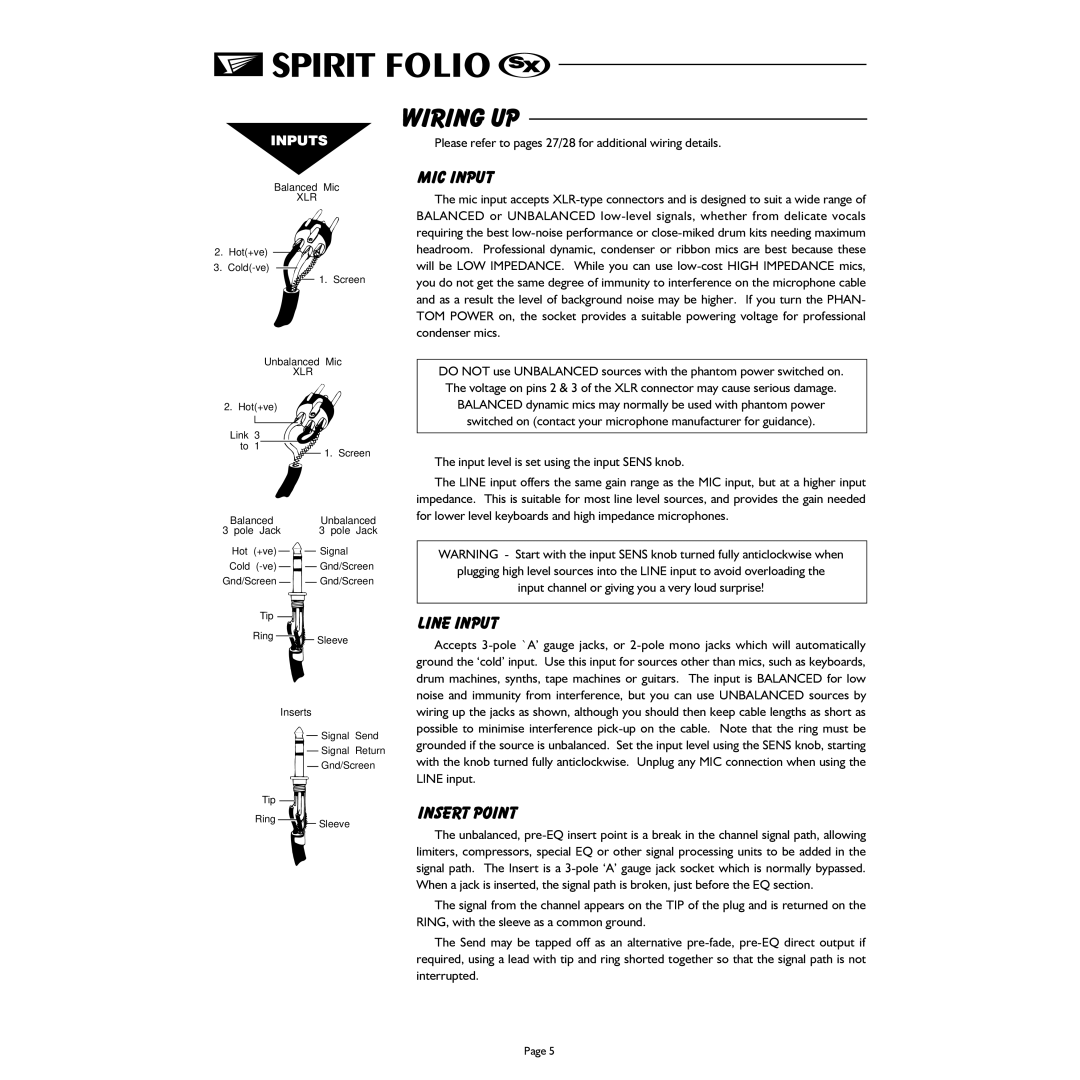
Balanced Mic
XLR
2. Hot(+ve)
3.
![]()
![]() 1. Screen
1. Screen
WIRING UP
Please refer to pages 27/28 for additional wiring details.
MIC INPUT
The mic input accepts
Unbalanced Mic
XLR
2. Hot(+ve)
Link | 3 |
|
|
|
|
|
|
to | 1 |
|
|
|
|
| 1. Screen |
|
|
|
| ||||
|
|
|
|
|
|
|
Balanced |
|
|
|
| Unbalanced | ||||
3 pole Jack |
|
|
|
| 3 pole Jack | ||||
Hot | (+ve) |
|
|
|
|
|
|
| Signal |
|
|
|
| ||||||
Cold |
|
|
|
|
|
| Gnd/Screen | ||
|
|
|
|
|
| ||||
Gnd/Screen |
|
|
|
|
| Gnd/Screen | |||
|
|
|
|
| |||||
Tip ![]()
![]()
Ring ![]()
![]()
![]() Sleeve
Sleeve
Inserts
![]()
![]() Signal Send
Signal Send
![]()
![]() Signal Return
Signal Return
![]()
![]() Gnd/Screen
Gnd/Screen
Tip ![]()
Ring ![]()
![]()
![]() Sleeve
Sleeve
DO NOT use UNBALANCED sources with the phantom power switched on. The voltage on pins 2 & 3 of the XLR connector may cause serious damage.
BALANCED dynamic mics may normally be used with phantom power switched on (contact your microphone manufacturer for guidance).
The input level is set using the input SENS knob.
The LINE input offers the same gain range as the MIC input, but at a higher input impedance. This is suitable for most line level sources, and provides the gain needed for lower level keyboards and high impedance microphones.
WARNING - Start with the input SENS knob turned fully anticlockwise when
plugging high level sources into the LINE input to avoid overloading the
input channel or giving you a very loud surprise!
LINE INPUT
Accepts
INSERT POINT
The unbalanced,
The signal from the channel appears on the TIP of the plug and is returned on the RING, with the sleeve as a common ground.
The Send may be tapped off as an alternative
Page 5
